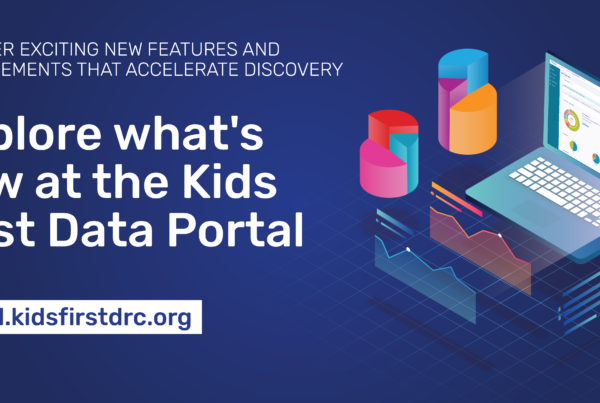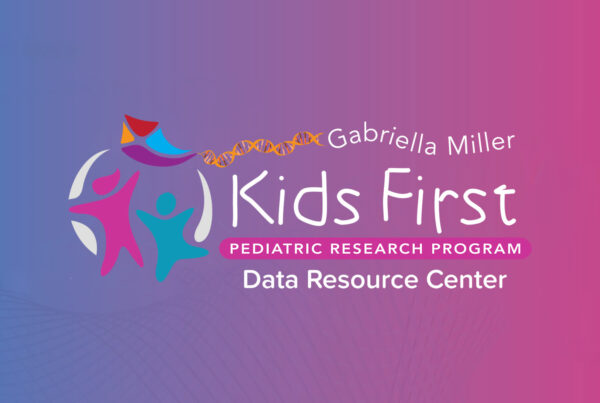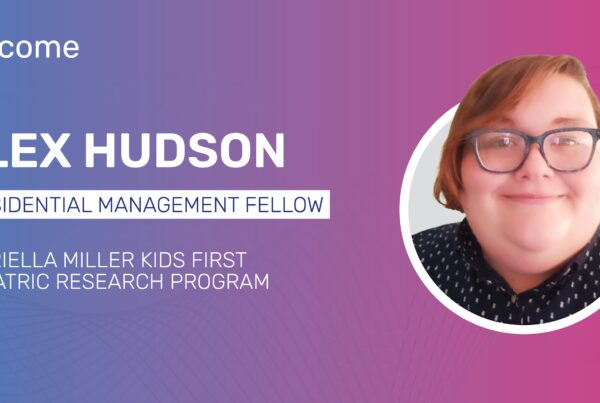The NIH Common Fund-supported Gabriella Miller Kids First Data Resource Center (Kids First DRC) is a dynamic and ever-growing effort to create opportunities for investigators, clinicians, patient families, foundations, and other stakeholders from across the research and healthcare landscape to collaborate and share resources toward a better understanding of the genetic causes and links between childhood cancer and structural birth defects. This revolutionary resource is available to scientific investigators across the U.S. and around the globe.
Since our official launch in September 2018, the Kids First DRC’s Data Resource Portal and website have continuously refined the data analysis capabilities, resources, available data, and research tools that have attributed to the DRC’s growth into one of the largest repositories of pediatric genomic data of its kind on Earth.
New Data Available within the Kids First Data Resource Portal
On June 27, 2019, the Kids First DRC was pleased to release the newest dataset available to researchers on the Data Resource Portal. This new study – on Nonsyndromic Orofacial Cleft (OFC) Birth Defects in Latin American Families – is a whole genome sequencing study led by Kids First X01 Investigator Dr. Mary L. Marazita of the University of Pittsburgh Center for Craniofacial and Dental Genetics, and includes a collaboration with Dr. Lina Moreno Uribe and Dr. Andrew Lidral of the University of Iowa.
Available in this dataset are more than 1,800 files (over 20 TB) of Aligned Reads, gVCFs, and family-based gVCFs representing 804 participants and 271 Latin-American case-parent trios. To learn more about this study and to apply for dbGaP access, visit the National Center for Biotechnology Information (NCBI) Here.
Other developments within the Kids First Data Resource Portal include the expansion of available data types for the Orofacial-Cleft: European-Ancestry dataset, also led by Dr. Mary L. Marazita, as well as the dataset on Congenital Heart Defects, led by Dr. Christine Seidman of Harvard Medical School. 11.5 TB and nearly 14 TB of gVCF files have been added to Drs. Marazita and Seidman’s studies, respectively.
Functional Improvements to Kids First Bioinformatics Pipelines
Kids First bioinformatics engineers have recently developed a new delivery structure for handing over harmonized genomic data generated by Kids First sequencing centers to Kids First X01 investigators. This new structure reorganizes the harmonized data delivered to X01 investigators, improving ease of accessibility when these data are moved into CAVATICA.
Provide Real-Time Feedback as a Data Resource Portal or Website User
Growth at the Kids First DRC would not be possible without the active engagement and dialog between Kids First DRC collaborators and our Portal and Administrative & Outreach teams.
With public and user input, we’ve introduced new tools and features to the Portal and have implemented regular functional improvements to user experience and analytical capabilities towards creating the most effective tool possible for investigators studying childhood cancers and structural birth defects.
Now, Data Resource Portal users, as well as anyone visiting our website at kidsfirstdrc.org have an easier way to provide on-the-spot feedback regarding portal functionality, usability, and design.
Simply click the blue “Feedback” tab on the right margin of the Kids First Portal or website screen to leave a general note. Going further, users can also click the arrow icon to select a specific portal/webpage element on which to comment.
More Developments to the Kids First DRC on the Horizon
A number of design and functionality improvements are currently in the works at the Kids First DRC and our Data Resource Portal. These updates are expected to roll out over the next several weeks.
Users will soon see expanded options for gaining access to their Portal accounts as we enable those with ORCHID iDs to use their credentials to easily login to their Portal dashboard – similar to our current sign-in mechanisms linked to Google or Facebook accounts.
For the Pediatric Brain Tumor Atlas provided by our collaborating partner, the Children’s Brain Tumor Tissue Consortium , Portal users will soon find optimized connectivity and interoperability between pediatric brain tumor data available on the Kids first Data Resource Portal and PedcBioPortal.
Finally, the Data Resource Portal will soon include new Study Participant ID pages, which will allow investigators to easily reference the entire de-identified clinical history of a participant (including clinical information, observed phenotypes, and other associated data) in one location. Participant IDs are currently represented on the Data Resource Portal as “PT_####” and will be made clickable, similar to our recently-added Genomic File ID pages.
Get Started with the Kids First Data Resource Portal Today
Researchers specializing in childhood cancer and structural birth defects can get started on the Gabriella Miller Kids First Data Resource Portal in just a few simple steps! First, visit https://kidsfirstdrc.org/portal/portal-features/ to learn more about the Data Resource Portal and its features. Then, visit https://kidsfirstdrc.org/support/getting-started/ to follow our Quick-Start guide to creating your free Data Resource Portal account today!










